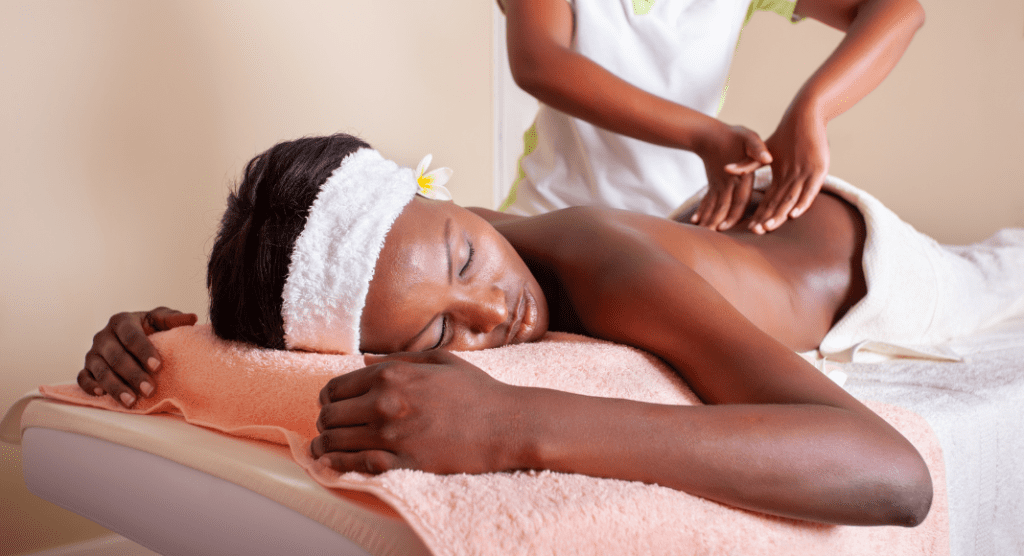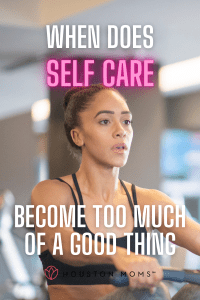As a therapist, woman, mother, and all around human being surviving in this crazy world, I believe that self-care is essential. Self-care helps me to slow things down and relax when things around me are feeling overwhelming and chaotic. It is my time for rejuvenation and solitude – two things that I do not get often.
The word self-care is no longer a word that only therapists use. For many, it has become commonplace in people’s everyday thoughts and conversations. It’s a buzzword. Everywhere I turn someone (or something) is referencing self-care. The fact that it is an everyday term is something that should be celebrated. However, at what point does the scale tip toward the other end? When does too much of a good thing become bad?
The concept that too much of a good thing makes a bad thing is not a foreign idea. Let’s take chocolate for example. I love it and would definitely place it in the “good thing” category. However, if I start eating too much chocolate (which yes I have obviously done) then that good thing becomes a bad thing. Another great example that all Houstonians can relate to is rain. Rain is “good thing” – it waters our lawns, brings in cooler weather, produces bountiful crops. Yet we all know that too much rain can be a “bad thing”.
What is Self-Care?
 Let’s first think about what exactly is self-care. At its most basic level, self-care is the practice of taking care of one’s own health and wellness. The focus on self-care is ultimately on providing oneself with rest, care, and joy. This includes both physical and mental health. Self-care is what you do because you love yourself and/or you want to rejoice in yourself.
Let’s first think about what exactly is self-care. At its most basic level, self-care is the practice of taking care of one’s own health and wellness. The focus on self-care is ultimately on providing oneself with rest, care, and joy. This includes both physical and mental health. Self-care is what you do because you love yourself and/or you want to rejoice in yourself.
More Than Beauty Treatments
 When you think about self-care what comes to mind? For many, it is things such as face masks, massages, and exercise. This is because pop culture has emphasized the importance of physical wellness. We have come to understand the connection between mental and physical health, and while these are all vital parts of self-care, they do not show the complete picture. Self-care also includes practices such as setting boundaries, socializing with others, journaling, and connecting with nature (to name a few). When we only focus on our physical self, so much of our full personhood is lost and forgotten.
When you think about self-care what comes to mind? For many, it is things such as face masks, massages, and exercise. This is because pop culture has emphasized the importance of physical wellness. We have come to understand the connection between mental and physical health, and while these are all vital parts of self-care, they do not show the complete picture. Self-care also includes practices such as setting boundaries, socializing with others, journaling, and connecting with nature (to name a few). When we only focus on our physical self, so much of our full personhood is lost and forgotten.
Is More Always Better?
 We live in a society where “more is better”. We are constantly wanting to have more, do more, be more, and expect more. So what about self-care? Is more always better?
We live in a society where “more is better”. We are constantly wanting to have more, do more, be more, and expect more. So what about self-care? Is more always better?
Definitely not! In fact, there two key features to self-care. The first is moderation. Even if we have a hard time achieving it, we all know what moderation is. If not done in moderation it becomes all-consuming and bounces into something that is stressful which is inherently counter-productive.
For me, exercise is a huge part of my self-care routine. I’m an early morning exerciser, so I use it as my “me time”. Not to mention, exercise helps me to feel more patient, calm, and focused which are things everyone with children needs. However, exercise is a great example of something that can start to tip the scales of good versus bad when not done in moderation.
The key is to find a way to make yourself BOTH happier and healthier. When a self-care technique, like exercise, starts to become more of a chore, obsession, or punishment it is no longer self-care. For some, exercise can become an obsessive practice (“I’m a bad person because I didn’t work out today”) or one of self-punishment (“I ate that cookie so now I need to work it off”). When your form of self-care starts to create stress or worry, it is a sign that it has migrated towards the “bad thing” category.
Mindfulness
 The other key feature of self-care is mindfulness. This is a trickier concept to understand. Simply put, mindfulness is having a focus on the here and now. To find one thing to focus on and focusing solely on that. This is a concept that is foreign to many of us. However, when it comes to caring for ourselves, mindfulness is essential.
The other key feature of self-care is mindfulness. This is a trickier concept to understand. Simply put, mindfulness is having a focus on the here and now. To find one thing to focus on and focusing solely on that. This is a concept that is foreign to many of us. However, when it comes to caring for ourselves, mindfulness is essential.
Have you ever read a book and then suddenly get to the end of page and realize you have no idea what you just read? This is a perfect example of not being mindful. Clearly, when you were reading with your eyes, your mind was wandering elsewhere. So, while you reached the bottom of the page, your mind did not take in any information.
This can become a key problem. Often, the practices that started as self-care have become rote. They are now the things that are just a part of our regular day and not longer hold value or significance. We have developed mindless habits instead of intentional practices. When it comes to self-care, quality over quantity. It is better to do fewer things more mindfully than many things without any intention.
What self-care do you engage in? Take the time to evaluate does it tip the scales to a “good” thing or “bad”.













